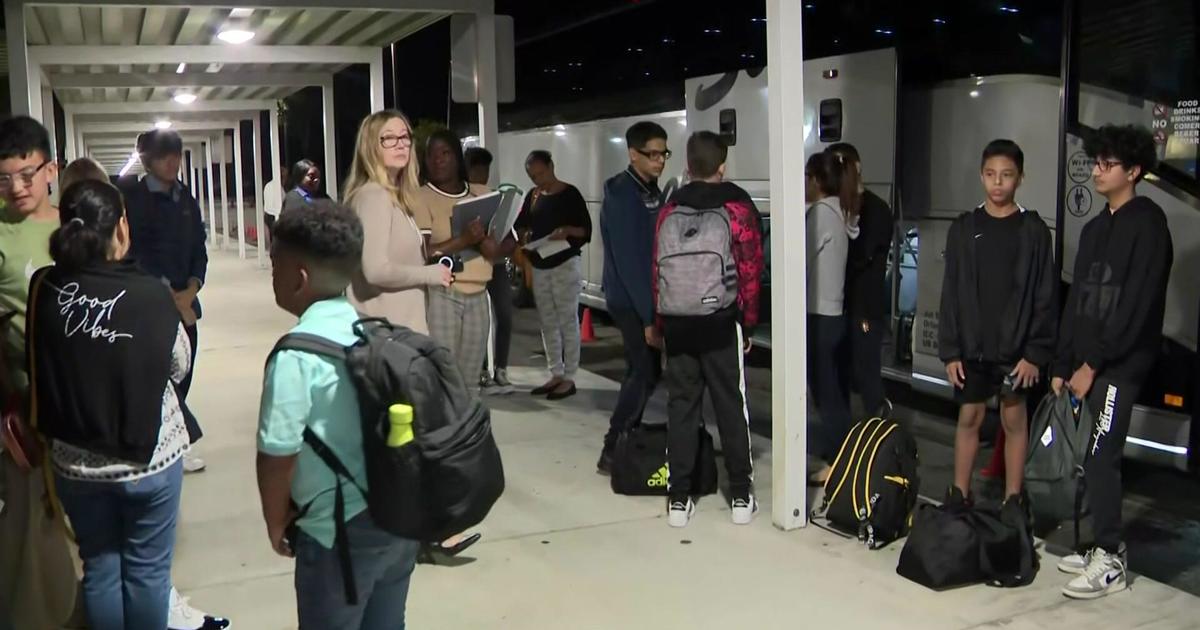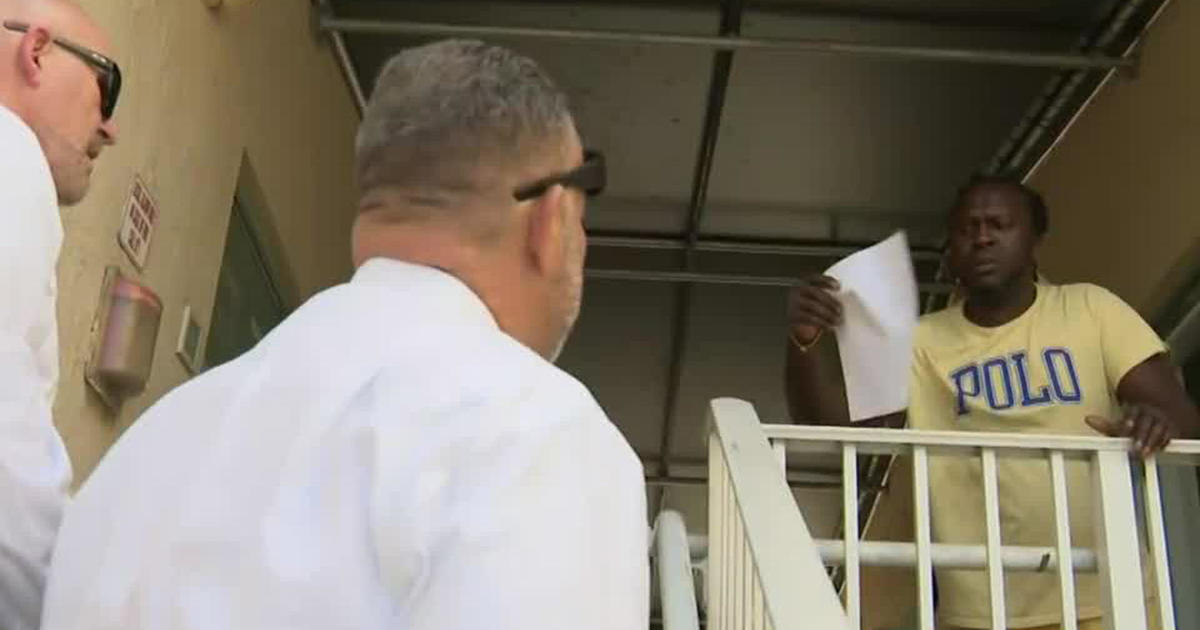South Florida Cracks Down On Street Solicitors
BROWARD (CBSMiami) – Broward intersections will become a little less busy during the upcoming year.
No, the amount of drivers won't decrease, but the many panhandlers who stand in the streets seeking loose change will.
Many cities are banning panhandlers, nonprofit groups and anyone else who ask drivers for money in the middle of intersections, according to the Sun-Sentinel.
No-soliciting zones have become more prominent after police noticed that these intersections posed the most risk of injury in traffic incidents.
After a federal court ruling for a similar matter in Pembroke Pines earlier this year, other cities have been given the green-light to do the same.
"I have been trying to figure out how to solve this problem for quite some time," Lauderhill Mayor Richard Kaplan told the paper. "[The Pembroke Pines verdict] gave us the opportunity to follow in their footsteps and to place it into our city."
So far, Lauderhill commissioners are pushing to ban solicitors from six intersections, including three on U.S. 441.
Coral Springs has already banned solicitation at more than a dozen intersections, mostly along Sample Road, University Drive and Wiles Road.
And Tamarac officials are deciding on which intersections they want to be solicitor-free.
Cooper City, Hollywood, Miramar and Boca Raton, Pembroke Pines also have bans along their major roads.
Last week Sean Cononie, who founded the Homeless Voice shelters, said several the street bans essentially prohibit them selling their "Homeless Voice Newspaper."
Cononie said the sale of the newspaper is their main source of funding.
"We can't operate an emergency level shelter without the paper, it's out of business. We can't do it, it's impossible," said Cononie. "It costs a lot of money to operate an emergency level shelter."
Right now, the nine shelters Cononie operates in Broward house nearly 400 people a night; the biggest shelter is in Hollywood. He said his doors are open to everyone and that's expensive.
"Basically we take the people no one wants; we're basically the dumping grounds for Broward County," said Cononie.
Cononie said if the cities and the county want him to continue to take in those in need; they're going to have to figure something out. He said they should either grant him an exemption and let his people sell the paper on their streets or they should start paying him to house the homeless.



